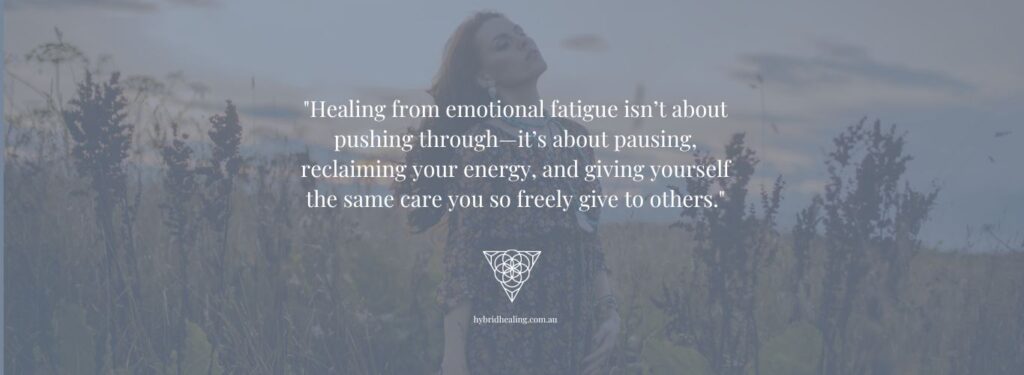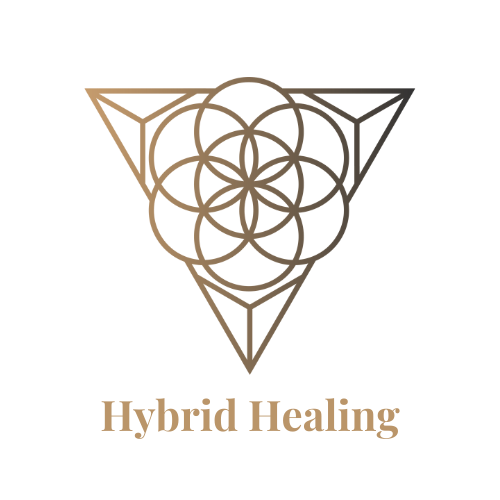
Have you ever felt completely drained, not just physically but emotionally? You wake up tired even after a full night’s sleep. Conversations feel exhausting. Decisions that were once simple now feel overwhelming. This could be more than just stress—it might be emotional fatigue.
What Is Emotional Fatigue?
Emotional fatigue, also known as emotional exhaustion, is a state of being mentally and emotionally depleted due to prolonged stress, overwhelm, or ongoing emotional demands. It happens when we give too much of ourselves without taking time to recharge.
This exhaustion isn’t just about feeling “tired.” It can show up as:
- Irritability or mood swings
- Feeling numb or disconnected
- Lack of motivation or enthusiasm
- Increased anxiety or sadness
- Physical exhaustion or chronic fatigue
- Difficulty concentrating or making decisions
How Emotional Fatigue Happens
Emotional fatigue builds up over time, often without us realizing it. Here are some common causes:
1. Ongoing Emotional Stress
Constant stress—whether from work, relationships, or personal struggles—can take a toll. When we don’t take breaks or find ways to recharge, we risk emotional exhaustion.
2. Giving Without Replenishing
Many of us spend our time caring for others—children, family members, friends, or colleagues—without taking care of ourselves. Over time, this imbalance leads to burnout.
3. Suppressing Your Own Needs
If you’ve been taught to always put others first or “push through” tough times without acknowledging your emotions, emotional fatigue can build up quickly.
4. Unresolved Stress or Overload
If you’re constantly juggling responsibilities without time to process emotions or recharge, your energy levels will eventually deplete, leading to emotional exhaustion.
How to Heal from Emotional Fatigue
Healing is possible, and it begins with small, intentional changes.
1. Recognize the Signs & Prioritize Rest
The first step is acknowledging that you’re emotionally exhausted. You don’t need to “push through” or pretend everything is fine. Give yourself permission to pause and rest.
2. Set Healthy Boundaries
If certain people or situations drain your energy, it’s okay to step back. Learning to say no without guilt is essential for protecting your emotional well-being.
3. Reconnect with Yourself
Emotional fatigue often disconnects us from who we are. Take time to do things that bring you joy, inspire you, and help you feel grounded again.
4. Seek Support & Resources
Overcoming emotional fatigue is easier when you have guidance, tools, and a supportive community.
If you’re ready to rediscover your authenticity and build stronger connections, reach out to explore how our programs and courses can support you. You don’t have to go through this alone—let’s take the first step toward healing together.
You deserve to feel energized, empowered, and whole again.
Disclaimer:
The information provided in this article, along with our educational content, programs, and courses, is for informational and educational purposes only. It is not intended as a substitute for professional advice, diagnosis, or treatment. We strongly encourage you to seek guidance from a qualified professional before applying any of the concepts discussed.
If you are experiencing emotional fatigue, distress, or any form of crisis, we recommend reaching out to a licensed mental health professional or support service. Our programs and courses should be used only after seeking professional advice to ensure they align with your individual needs and circumstances.
If you are in immediate danger or experiencing a crisis, please reach out to a trusted friend, family member, or professional organization for help.
International Support Resources:
- United States: National Domestic Violence Hotline – Call 1-800-799-SAFE (7233) or visit www.thehotline.org
- United Kingdom: Refuge – Call 0808 2000 247 or visit www.nationaldahelpline.org.uk
- Canada: Assaulted Women’s Helpline – Call 1-866-863-0511 or visit www.awhl.org
- New Zealand: Women’s Refuge – Call 0800 REFUGE (733 843) or visit www.womensrefuge.org.nz
Australian Support Resources:
- 1800RESPECT (National Sexual Assault, Domestic and Family Violence Counselling Service) – Call 1800 737 732 or visit www.1800respect.org.au
- Lifeline Australia (24/7 crisis support) – Call 13 11 14 or visit www.lifeline.org.au
- Beyond Blue (Mental health support) – Call 1300 22 4636 or visit www.beyondblue.org.au
If you would like to learn more about how we can support you in rediscovering your authenticity and building healthier connections, know that you don’t have to navigate this journey alone. If you’re struggling with emotional fatigue and looking for guidance, we’re here to help. Reach out to us to explore how our programs and courses might be a good fit for you, providing the tools and support you need to regain clarity, confidence, and emotional well-being.
Your well-being matters and help is available. If you are in an emergency, please contact local emergency services immediately.

Recent Comments